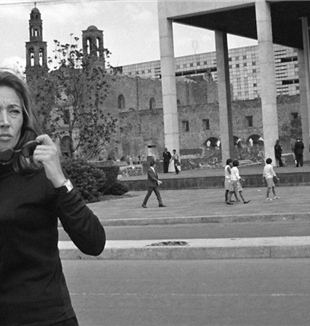
In the Service of the Truth
Moved by the New York Encounter journalism event, Suzanne shares her experience.I was recently at Mass and heard the reading: “Judge not, lest you be judged.” The priest homilized that Jesus did not mean that we will not be judging. “Anyone who says they do not judge is not truthful,” he asserted. “We all judge all day long and Jesus knew this – it is human, afterall, and he was human. It is more about how we judge.” We need to acknowledge the truth that we do judge and judge ourselves first, looking closely at what needs change and reform. Only then can we attend, with love, to the splinter in the other’s eye.
The consonance between this pastoral direction and the words of seasoned yet sensitive journalists was interesting. At the New York Encounter, we met with Elena Parazzini, personal assistant to the iconic and intrepid journalist Oriana Fallaci; Patrick Radden Keefe, writer and investigative journalist for The New Yorker; and Thomas Rosenstiel, former director of the American Press Institute. Strikingly, the call to humility is real in both Christian life and in being responsible journalists, investigators, and purveyors of truth. Tom Rosenstiel insisted, “The journalist cannot be objective, but he can be transparent… Be aware of your preconceptions” – an important caution for the truth seeker to remain open to surprise discoveries that refute preconceptions. Rosenstiel pointed out that “objectivity does not mean neutrality.” He explained, “Think of transparency as coming closer to what objectivity means.” A good journalist is transparent; giving evidence has a higher value than preference or a projected outcome.
Transparent presentation of the facts – writing that is not partisan – is in danger. And trust in the media is notoriously low, with the outlets themselves feeding this trend. Today’s society, including the media, is heavily influenced by polar affiliations that obfuscate truth in favor of fidelity to the “team”. It changes the goal of journalism from that of moral inquiry to that of moral clarity, according to Patrick Radden Keefe. Keefe has made it a practice to follow the motto a colleague handed him, “Just tell the truth,” despite considerable risk to his person and to his career. He commented, “If you feel you need to shape the truth due to relationships, it means you are cheating” and, “You have to love truth more than your own opinion.”
The title of this event, “Journalism is in service of the truth” was taken from comments by Oriana Fallaci, whose career spanned years of covering topics or truths unpopular with those in power. Like Keefe, she saw herself as a public servant, taking risks time and time again – even physical ones – in her efforts to live up to this ideal.
As a Catholic editor and writer, I was personally inspired by these fearless panelists. In my own microverse, I can strive to be first more prayerful in asking for guidance, and then more open and straightforward when facing production of a new publication under my purview, or when writing a meditation or book review. I too can ask: Is my preconception about where this is heading actually holding back higher truths or avoiding deeper questions?
This event also shone a light on the reality of how, from the other side, we are informed. With media outlets feeding the polarizing outrage, how can I, in the audience, protect myself from what Keefe calls “a journalism of affirmation,” which is heavily driven by an economic model that thrives on such outrage? He admits that it requires a “savvy consumer” to step out of the “which team?” spiral to find trustworthy media outlets that broaden viewpoints with true reporting. Rosenstiel explained that journalism should always be understood as a process, with facts about reality being not conclusive but provisional: “Over time, we will get closer to the truth.”
This event went deeper than addressing writing and media use, however. It struck at the heart of each person’s “urge for the truth.” Fallaci’s close associate Elena insisted that the goal of journalism is to “find and explore your dignity; educate; and denounce wrongs.’’ She quotes Fallaci: “My work is wonderful if it is approached not as a job but as a mission.” And so it is with life lived in the service of the truth.
Suzanne, Kensington, MD